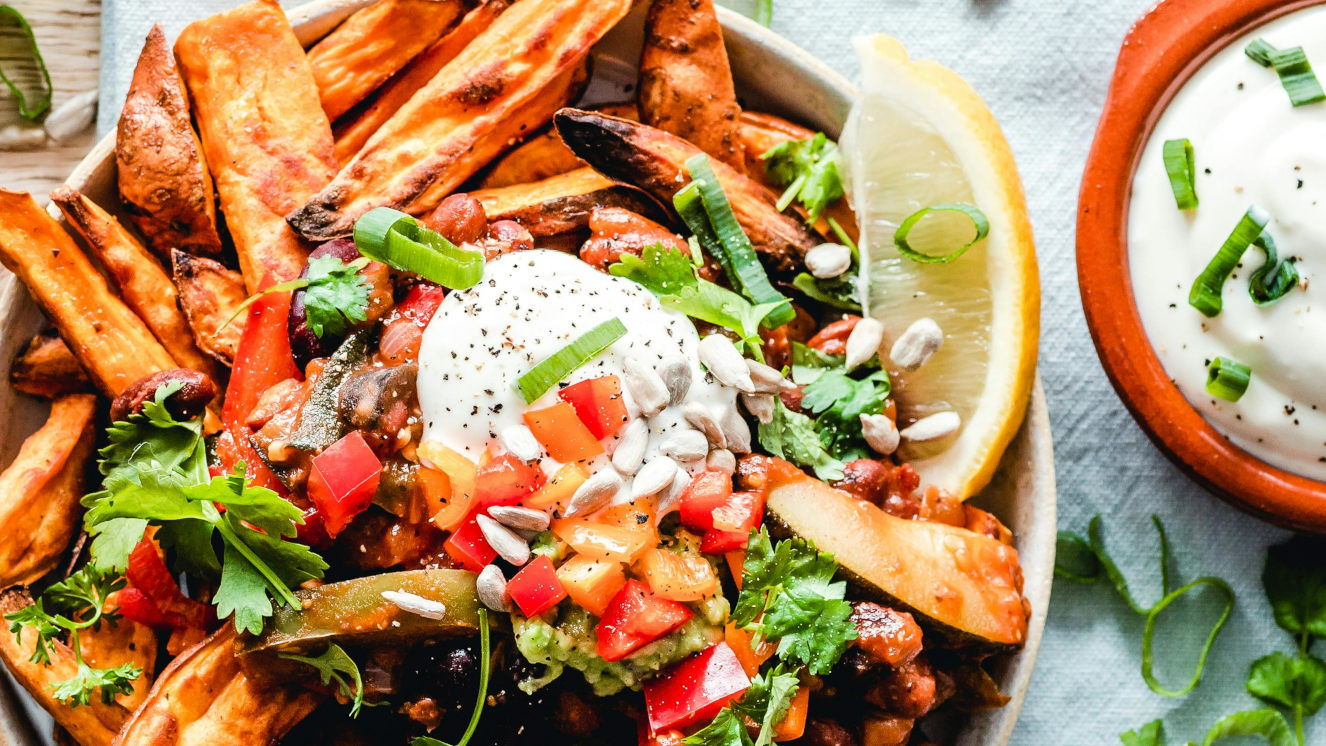Adopting a vegetarian or vegan lifestyle in the UK can significantly reduce your grocery bills, freeing up funds to save for a deposit on a home, car, or other big-ticket goals. Research shows plant-based diets can cut food costs by up to one-third, offering savings of £500–£1,000 annually compared to meat-based diets. By swapping expensive animal products for affordable staples like lentils, rice, and seasonal vegetables, you can build your savings faster while supporting your health and the environment. Most strategies are accessible, sustainable, and easy to implement, even during the cost-of-living crisis.
What Is Vegetarian/Vegan Living?
A vegetarian diet excludes meat, fish, and poultry, while a vegan diet eliminates all animal products, including dairy, eggs, and honey. Both rely on plant-based foods—grains, legumes, vegetables, fruits, nuts, and seeds—which are often cheaper per calorie than meat or dairy. These diets not only save money but also align with ethical and environmental goals, making them a win-win for budget-conscious savers aiming for a deposit.
Key Features
| Feature | Details |
|---|---|
| Cost Savings | Up to 16%–33% lower grocery bills (£500–£1,000/year) compared to meat-based diets. |
| Food Staples | Lentils, chickpeas, rice, pasta, oats, seasonal vegetables, and frozen produce. |
| Accessibility | Available at supermarkets, local markets, or bulk stores like Costco. |
| Considerations | Plan meals, buy in bulk, and avoid pricey vegan substitutes to maximize savings. |
Pro Tip: Use resources like Budget Bytes or Vegan Society recipes to find affordable plant-based meals. Check local supermarkets for “wonky veg” boxes to save on produce.
How Plant-Based Diets Save Money
Switching to a vegetarian or vegan diet reduces reliance on costly animal products. For example:
- Meat vs. Plant-Based: In the UK, beef costs £2.18–£2.74 per burger patty, while a Beyond Meat patty is £3. However, staples like lentils (£0.50–£1/kg) or chickpeas (£0.40–£0.80/tin) are far cheaper and protein-rich.
- Dairy Alternatives: Soy milk (£0.80–£1.50/litre) is often cheaper than dairy milk (£1–£2/litre), and making your own hummus costs less than buying pre-made dairy cheese.
- Bulk Buying: Staples like rice (£1–£2/kg), oats (£0.75–£1.50/kg), and dried beans (£1–£2/kg) are budget-friendly when bought in bulk at stores like Costco or the “world foods” aisle.
A 2023 study by the Physicians Committee for Responsible Medicine found a low-fat vegan diet saves 16% on grocery costs (£500+/year) compared to a meat-based diet. An Oxford University study noted vegan diets can cut food costs by up to one-third, with vegetarian diets close behind. These savings can directly boost your deposit fund.
Example Savings: £500 Monthly Grocery Budget
| Diet Type | Annual Cost | Annual Savings | 5-Year Savings |
|---|---|---|---|
| Meat-Based Diet | £6,000 | £0 | £0 |
| Vegetarian Diet | £5,100–£5,400 | £600–£900 | £3,000–£4,500 |
| Vegan Diet | £4,800–£5,100 | £900–£1,200 | £4,500–£6,000 |
Pro Tip: Batch-cook meals like chickpea curry (£1.70/serving) or lentil dahl (£1/serving) and freeze portions to save time and money. Use apps like Ibotta or supermarket sales to stretch your budget further.
Building Your Deposit: Financing, Investment, and Access
A vegetarian or vegan lifestyle can accelerate your deposit savings by redirecting grocery savings into a high-yield savings account or Cash ISA, while maintaining nutritional balance for long-term health.
Financing the Deposit
Regular savings from a plant-based diet can significantly grow your deposit. For example:
- Home Deposit: A 10% deposit for a £200,000 home is £20,000. Saving £900/year on a vegan diet could cover 4.5% of this in one year, or 22.5% in five years.
- Car Deposit: A 20% deposit for a £15,000 car is £3,000. Vegetarian savings of £600–£900/year could cover this in 3–5 years.
Pro Tip: Pair your diet savings with a high-yield savings account (e.g., Santander Edge Saver at 7% AER) to maximize growth toward your deposit.
Investment Potential
Plant-based diets are a low-risk way to free up cash without sacrificing nutrition. Staples like lentils and rice are nutrient-dense, shelf-stable, and cheaper than meat, ensuring you save consistently. Unlike volatile investments like stocks, these savings are guaranteed and can be funneled into FSCS-protected accounts for safety.
| Strategy | Risk Level | Savings Potential |
|---|---|---|
| Vegetarian/Vegan Diet | Low | £500–£1,000/year guaranteed |
| Stocks/Crypto | High | Variable, potential losses |
Pro Tip: Avoid expensive vegan substitutes (e.g., premium plant-based cheese at £7.49/pack) and focus on whole foods like beans and grains to maximize savings.
Accessing Your Savings
Most plant-based savings are liquid, meaning you can redirect them immediately into a savings account or use them for other expenses. To ensure flexibility:
- Meal Planning: Plan weekly meals to avoid impulse buys. A shopping list prevents overspending on pricey vegan alternatives.
- Bulk Buying: Stock up on staples during sales to lock in savings, freeing up cash for your deposit fund.
- Grow Your Own: Herbs like basil (£1.50/plant) or vegetables from a small garden can cut produce costs further.
Pro Tip: Use a Cash ISA (up to £20,000 tax-free annually) to store your savings tax-free, ensuring maximum growth for your deposit.
Environmental and Ethical Bonuses
Beyond savings, vegetarian and vegan diets reduce your environmental footprint, aligning with sustainable living. A vegan diet saves 4,164 liters of water, 18 kg of grain, 3 m² of forest, 9 kg of CO2, and one animal life daily. Vegetarian diets save slightly less but still have a significant impact. These benefits enhance the value of your lifestyle choice, supporting both your wallet and the planet.
| Diet Type | Daily Savings |
|---|---|
| Vegan | 4,164L water, 18 kg grain, 9 kg CO2 |
| Vegetarian | ~3,000L water, 15 kg grain, 7 kg CO2 |
Pro Tip: Track your environmental impact with tools like the Vegan Calculator to stay motivated while saving.
Wrap It Up
Adopting a vegetarian or vegan lifestyle is a powerful strategy for UK savers, especially Gen Z and Millennials, aiming for a deposit. By cutting grocery costs by 16%–33% (£500–£1,000/year), you can build a larger deposit for a home or car, improve mortgage or loan terms, and access funds easily through smart budgeting. Focus on affordable staples like lentils, rice, and seasonal produce, and avoid costly vegan substitutes. Pair your savings with an FSCS-protected high-yield account or Cash ISA for maximum growth. Use resources like Budget Bytes, the Vegan Society, or supermarket sales to optimize your budget, and watch your deposit fund grow while living sustainably.
Cost Comparisons & Research
- Oxford University Study – Plant-Based Diet Cost Savings
Found vegan diets can reduce food costs by up to one-third compared to meat-based diets in the UK. - BBC Good Food – Budget Vegan Meal Plans
Cheap, nutritious recipes using UK supermarket staples (e.g., lentils at £0.50/kg).
UK Discounts & Shopping Guides
- Approved Food – Reduced-Price Groceries
Sells discounted plant-based staples (e.g., tinned chickpeas for £0.30). - Too Good To Go – Surplus Food App
Rescues £5–£10 “magic bags” of surplus vegan food from UK supermarkets. - Olio – Free Food Sharing
Connects users with free, locally available plant-based foods.
Nutrition & Meal Planning
- The Vegan Society – Cheap Meal Plans
Budget-friendly recipes and £1-per-meal challenges. - NHS – Vegetarian/Vegan Nutrition
Official guidance on balanced, affordable plant-based eating.
UK-Specific Savings Tools
- MoneySavingExpert – Vegan on a Budget
Tips to cut costs (e.g., buying “world foods” aisle pulses). - Supermarket Schemes
- Tesco “Plant Chef” – Affordable Range
Pre-packaged meals from £1.50. - Asda “Wonky Veg” Boxes – Reduced Produce
Saves 30% on imperfect vegetables.
- Tesco “Plant Chef” – Affordable Range
Environmental Impact
- Carbon Trust – Food Footprint Calculator
Measures CO2/water savings from UK dietary choices.



